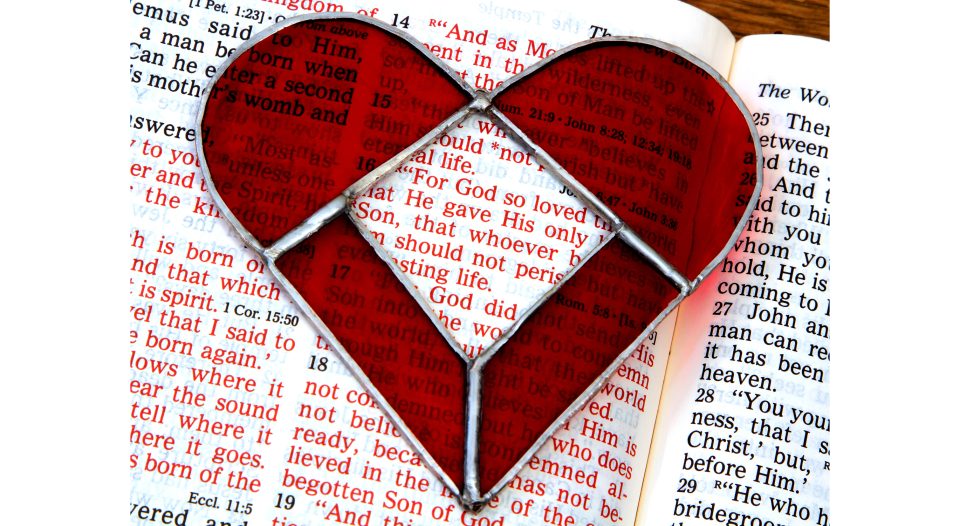Lectionary for March 10, 2024
Fourth Sunday in Lent
Numbers 21:4-9; Psalm 107:1-3, 17-22;
Ephesians 2:1-10; John 3:14-21
I was recently privileged to celebrate a community worship service with faculty and Region 6 candidates from the Theological Education for Emerging Ministries (TEEM) program. TEEM, a collaboration between the Indiana-Kentucky Synod and Pacific Lutheran Theological Seminary in Berkeley, Calif., brings diaconal and pastoral candidates together from all over the world and forms scores of candidates for ministry in the ELCA.
The daily communal worship is a collaboration of all those present. Prayer and readings are conducted in Chinese (Mandarin), Mara, French, English and other languages. At a recent service I was struck by the words of the confession, which were said in an accent that allowed me to hear them afresh, as if for the first time. We, from all over the world, confessed together that we are trapped in sin and cannot free ourselves. While we were from different cultures, races and ethnicities, we look to the same God to save us from our sin and its consequences. This week’s lectionary readings all point to God’s universal desire to save humans from judgment for our sins.
In Numbers 21, as the wilderness community carefully stayed outside the territory of Edom (in Deuteronomy 2:1-9 God insisted that the Israelites and those with them not take over any land except that which God had set aside for them), they once again complained of hunger and thirst. They said there was no bread, and a few words later complained about the taste of the manna—bread from heaven (Numbers 21:5). The people also complained about a lack of water, even though the rock that provided it rolled along with them wherever they went (1 Corinthians 10:4). Valid complaints are one thing, but outright lies are another thing entirely. God did provide food and water to the wilderness community when needed. Furious, God sent flaming serpents to bite the ungrateful wanderers.
When the people saw the consequences of their false testimony about God’s provision, they moved toward confession. As a reminder, this confession occurred in many languages because of the mixed multitude who had joined the Israelites as God brought them out of Egypt (Exodus 12:38). When Moses interceded for the people, God instructed him to make a copy of the fiery serpents and raise it on a standard. Anyone who was bitten could look at the serpent that Moses had made and recover. It’s important to note that the snakes didn’t stop biting right away. But the people would be saved from the consequences of their sins if they looked to God’s solution.
Because of God’s great love, the Father made us alive together with Christ, even while we were dead in our sins.
The experience of people sinning, suffering the consequences, calling out to God for salvation, and then God saving them is one of the central motifs in Scripture. The psalmist recalls the events of the fiery serpent and proclaims:
“Fools, because of their rebellious way, and because of their guilty deeds, were afflicted.
Their souls loathed all kinds of food, and they came close to the gates of death.
Then they cried out to the Lord in their trouble; He saved them from their distresses.
He sent His word and healed them, and saved them from their destruction” (Psalm 107:17-20; New American Standard Bible).
How did God send the divine word to heal the wilderness community? Was it not a bronze serpent that healed the people? Jesus, in a conversation with Nicodemus, clarifies God’s salvific activity.
Jesus proclaimed that just as Moses had lifted up the serpent in the wilderness, he would be lifted up (on a cross) so that everyone who believes in him will be saved. Immediately, Jesus pointed to the universal implications of God’s salvation. God loves the world—not just one nation or another. God didn’t send the Son to judge the world, but so that the world might be saved through him (John 3:17). Whether it was God’s word that commanded Moses to make the bronze serpent or God’s Word made flesh, God’s Word saves humans.
Paul chimed in to remind the Ephesians that they were once dead in their sins, according to the prince of the air and the spirit of disobedience. Indeed, pagan religious rituals in Ephesus, such as at the temple of Artemis that focused on fertility, were probably what Paul was thinking of when he described being trapped in the “passions of our flesh, doing the will of flesh and senses” (Ephesians 2:3). But then Paul announced the good news: because of God’s great love, the Father made us alive together with Christ, even while we were dead in our sins. This good news is for all people—Jews and gentiles—as Jesus breaks down the dividing wall between people (11-15).
Paul reminds us: “Since all have sinned and fall short of the glory of God; they are now justified by his grace as a gift, through the redemption that is in Christ Jesus” (Romans 3:23-24). God rescues all people from sin and death.





